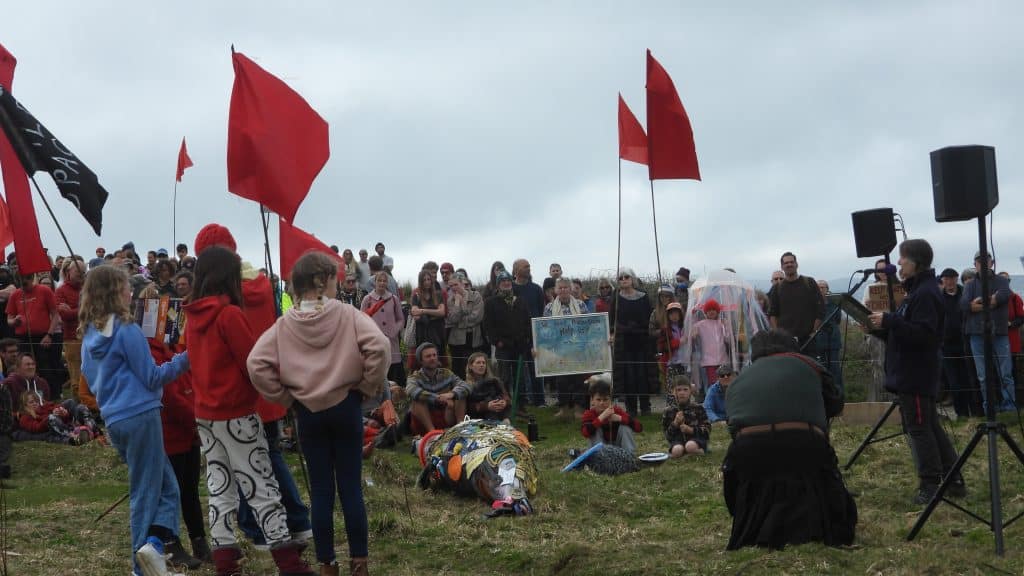- Two geoengineering projects were prevented from continuing
- Significant opposition was raised against three others
- International moratoria have been established at the UN Convention on Biodiversity and the London Convention
- Reports have consistently anticipated and exposed new geoengineering techniques as false solutions
A complete timeline follows.
1996
Scientists For Global Responsibility publishes report “Climate Engineering: A critical review of proposals, their scientific and political context, and possible impacts“
1999
Greenpeace report “Ocean Disposal/Sequestration of Carbon Dioxide from Fossil Fuel Production and Use: An Overview of Rationale, Techniques and Implications” touches on Ocean Fertilization.
2002-2006
Geoengineering discussed at civil society gathering “What Next?” convened by Dag Hammarskjold Foundation to discuss future scenarios to 2050.
2007
February: ETC Group releases “Gambling with Gaia” report.

May: Planktos announces plans to dump tonnes of iron filings in the ocean near the Galapagos, and an international coalition forms to oppose the experiment. Accion Ecologica, ETC Group, ICTA, Greenpeace, IUCN, IEN, Carbon Trade Watch, The Durban Group, Sea Shepherd and others take part. International bodies condemn the plan, and Sea Shepherd sends a ship to “intercept” the Planktos ship. The Planktos ship changes course to Spain and the Canary Islands.
June: ETC and Greenpeace bring the topic of ocean fertilization to the scientific groups of the London Convention, with supporting letters from World Wildlife Fund and International Union for Conservation of Nature. This initiates the process that leads to the current London Convention/Protocol framework on geoengineering.
Activists hold protests to oppose ocean fertilization at London Forum meetings.
ETC and Greenpeace bring ocean fertilization to the UN Convention on Biodiversity’s Subsidiary Body on Scientific, Technical and Technological Advice (SBSTTA) for the first time.
November: Australian company Ocean Nourishment Corporation announces plans to dump urea into the Sulu Sea near the Philippines. Philippine civil society groups – including SEARICE Third World Network, WWF Phil, FIshers groups – mobilize to stop it, while Greenpeace, IUCN and WWF intervene through the London Convention/Protocol.
2008
February: At the UN Convention on Biodiversity (CBD)’s 13th SBSTTA meeting, ocean fertilization is put on the agenda for the first time.
October: CBD Conference of Parties in Bonn calls for ocean fertilization moratorium after push by civil society organizations including SEARICE, ETC, Econexus, Third World Network, Ecoropa, and Biofuelwatch.
November: United Kingdom House of Commons hold committee hearings on geoengineering. Greenpeace testifies.
2009
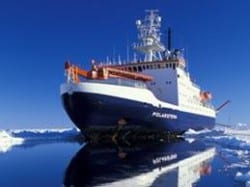
January: Indo-German research project LOHAFEX sets sail with plans to dump six tonnes of iron into the Southern Ocean. The project is opposed by a broad international coalition, including South African, German, Indian, South American and International Civil Society Organizations, the African Center for Biosafety, WWF, Greenpeace, ETC, IUCN, Bund, German NGO Forum, Third World Network, International Collective in Support of Fishworkers and others. Those opposed say it violates the moratorium called for by the Convention on Biodiversity, of which Germany and India are members. Subsequently, the German Environment Ministry calls for the project to be suspended. However, the project (under the authority of the Science Ministry) continues.
February: BiofuelWatch releases report, Biochar for Climate Change Mitigation: Fact or Fiction?
March: At the World Social Forum in Belem, Brazil, 80 civil society organizations release a statement entitled “The better world we seek is not Geo-engineered,” opposing ocean fertilization as LOHAFEX continues dumping iron.
Rising Tide North America releases Hoodwinked in the Hothouse: False Solutions to Climate Change.
April: The Indigenous Peoples’ Global Summit on Climate Change brings together 400 Indigenous people from 80 countries. The resulting “Anchorage Statement” called on States to abandon geoengineering as false solution.
May: 70 civil society organizations sign on to a statement opposing the privately-organized Asilomar Geoengineering Conference.
August: New Zealand-based Sustainability Council releases report: Restoring the Atmosphere: Dangerous Climate Change and the New Governance Required.
September: Royal Society releases report: Geoengineering the climate: science, governance and uncertainty – Biofuelwatch, ETC Group, Greenpeace and other other civil society organizations participating.
November: ETC and Swedish Society for Nature Conservation release report: Retooling the Planet? Climate Chaos in the Geoengineering Age.
December: Civil society groups hold side events on geoengineering at the Conference of Parties of the United Nations Framework Convention on Climate Change (UNFCCC) in Copenhagen and at the alternative conference Klimaforum.
2010
March: the Solar Radiation Management Governance Initiative is launched by the Environmental Defense Fund (US).
April: The World People’s Conference on Climate Change and the Rights of Mother Earth in Bolivia issues the People’s Agreement, denouncing geoengineering as a false solution.
The Hands Off Mother Earth campaign against open-air geoengineering experimentation launches, with over 100 organizations supporting, along with prominent signatories including David Suzuki, Bill McKibben, Naomi Klein, Vandana Shiva, Herman Daly, and Wes Jackson.
November: At the Conference of Parties of the UN Convention on Biodiversity in Nagoya, Japan, the assembled delegates agree on a moratorium on geoengineering. Civil society organizations are involved in negotiations and organize side events.
Friends of the Earth (England/Wales/Northern Ireland) releases report: Negatonnes – an Initial Assessment of the Potential for Negative Emissions Techniques to Contribute Safely and Fairly to Meeting Carbon Budgets in the 21st Century.
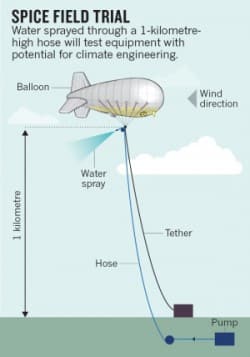 2011
2011
June: 160 civil society organizations sign letter asking Intergovernmental Panel on Climate Change (IPCC) to tread carefully with regard to geoengineering.
September: UK project Stratospheric Particle Injection for Climate Engineering (SPICE) aims to conduct open-air research about solar radiation management. Civil society groups launch “Stop the Trojan Hose” campaign, endorsed by 60 civil society organizations. Three days later, the project is suspended. It is later delayed and finally cancelled.
December: Biofuelwatch releases report: BECCS: Climate saviour or dangerous hype?
2012
June: At the Rio+20 meetings, civil society is active in negotiations and side events, including an intervention by Naomi Klein on geoengineering. The final declaration of the conference affirms the CBD moratorium.

October: ETC Group uncovers a massive ocean fertilization scheme underway off the coast of Haida Gwaii. A coalition of civil society groups raise the alarm, including David Suzuki Foundation, Living Oceans Society, Greenpeace, CBD Alliance, Indigenous Environmental Network, Indigenous Forum on Biodiversity and others.
2015
December: During the COP21 talks in Paris, organisations including Biofuelwatch, ETC Group, the Global Forest Coalition and other Climate Space member organisations make a rejection of false solutions to climate crisis such as “negative emissions technologies”, and in particular Bioenergy with Carbon Capture and Storage, a central theme of their messaging. Biofuelwatch releases a new, in-depth and critical report into BECCS, “Last-ditch climate solution, or wishful thinking?“, and ETC Group initiates “No to 1.5°C with geoengineering!“, an international declaration to reject the outcomes of the Paris Agreement.
2017
November: ETC Group and Heinrich Böll Foundation release an interactive world map of geoengineering experiments, featuring over 800 projects in Carbon Capture, Solar Radiation Management, Weather Modification and other approaches.
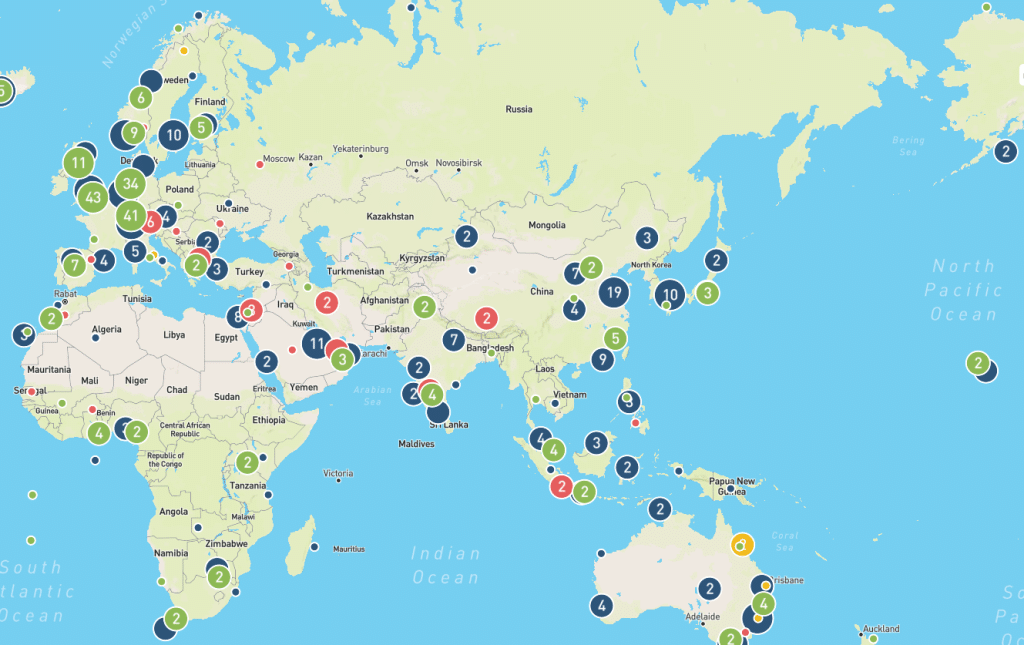
December: ETC Group, Biofuelwatch and Heinrich Boell Foundation publish The Big Bad Fix, a comprehensive report detailing each of the proposed geoengineering technologies and how they threaten people and ecosystems.
2018
October: 180 civil society organizations and popular movements launched the Hands Off Mother Earth! (HOME!) Manifesto, denouncing geoengineering and demanding an immediate stop to all open-air geoengineering experiments.
2019
August: Launch of an open letter to the Advisory Committee for SCoPEx, a project that aims to advance a solar geoengineering technology, signed by 40 international CSOs.
2020
May: Launch of the #OurNatureIsNotYourSolution social media campaign by the Global Forest Coalition and allies on International Day for Biological Diversity, resisting geoengineering and other false solutions to climate change and biodiversity loss.
2021
March: The Saami Council has together with Swedish environmental organisations published a letter to the Advisory Committee of the Harvard-based SCoPEx geoengineering project, voicing their strong concerns over the project and demanding the cancellation of the planned balloon test flight at the Swedish Space Corporation (Esrange) in Kiruna.
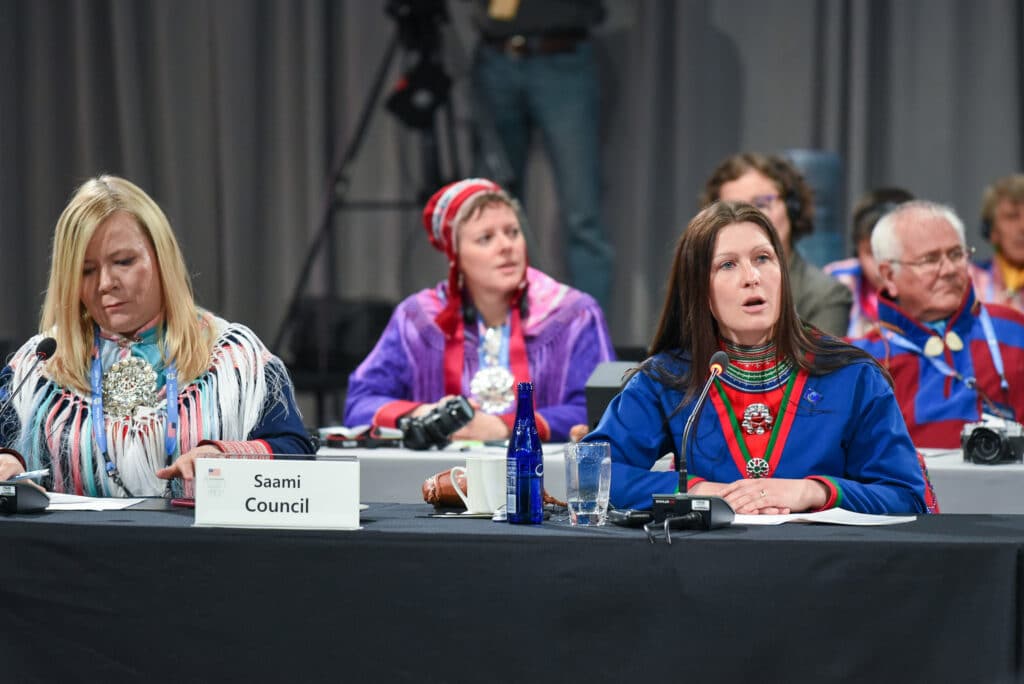
May: Numerous HOME! Alliance members publish Hoodwinked in the Hothouse, a new report that exposes new and alarming false solutions to climate change.
2022
January: Over 100, scientists, academics and climate experts from around the world issue a call for a non-use agreement on solar geoengineering. Their petition takes the stance that “solar geoengineering deployment at planetary scale cannot be fairly and effectively governed in the current system of international institutions. It also poses unacceptable risk if ever implemented as part of future climate policy. A strong political message from governments, the United Nations and civil society is urgently needed.”
May: An Alaska Native delegation calls on the California-based Arctic Ice Project to cease all research operations in the Arctic. The Arctic Ice Project, a solar geoengineering project that aims to modify ice reflectivity, would lead to the dumping of millions of synthetic silica glass microbeads onto the ice of the Arctic ocean.
November: HOME! Alliance issues statement on UNFCCC Article 6.4, calling on climate negotiators not to legitimise geoengineering and land-based offsets.
December: 83 national and international organizations from 40 countries release an open letter calling on the parties to the United Nations Conference on Biodiversity (CBD) to say no to geoengineering and yes to protecting biodiversity, the environment, the climate, the rights of Indigenous peoples and the human rights of local communities.
2023
January: Mexico upholds hard-won solar geoengineering moratorium in the Convention on Biological Diversity (CBD) by banning geoengineering experiments, setting a global example of precaution.
March: Over 35 African NGOs publish an open letter calling on the African Union to not geoengineer Africa, citing the fact that geoengineering is a techno-fix that can only provide an excuse for Africa and the Global North to continue relying on fossil-fuel based energy generation in light of the ongoing climate emergency.
November: Local community in Cornwall, UK, protests against marine geoengineering experiments off their coast, and demands to “Keep our seas chemical free”.
